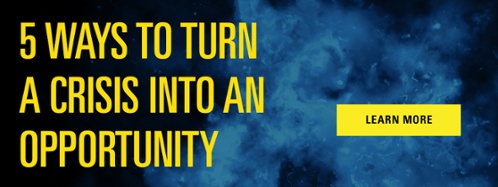
Loyalty is a great instinct, a trait every leader needs. But, in a crisis, it’s imperative to know where to direct your loyalty.
Tough as it might be to hear, your loyalty needs to be first to your brand, not to individual employees who may otherwise merit forgiveness for errors in judgment.
Take two recent business crises that fall into this category. Dan Grilo, a business consultant at Liberty Advisor Group, called the wife of a deceased Navy SEAL an “idiot” in a politically charged tweet posted during a presidential address to Congress in early March. The response of the Twitterati – from both sides of the political aisle – was swift and harsh. Grilo quickly deleted the tweet, but, as we all know in a digital world, hitting the “delete” key doesn’t make problems go away.
Grilo was likely a good consultant. He was contrite when he realized the gravity of his remark.
But Liberty fired him. And rightly so.
Firing Grilo was the first step in handling a crisis in an effective way. The company acted quickly, made a public gesture with the termination and was able to separate its corporate brand from the controversy. Grilo will undoubtedly have an uphill climb to rehabilitating his personal reputation. Liberty Advisor will have no such difficulty. Loyalty to the brand helped avert what could have been a huge reputational crisis.
On the flipside, the calculus of brand loyalty over personal loyalty is playing out over at Uber. The ride-sharing giant has been in the media crosshairs lately, mostly because of scrutiny of its founder and CEO, Travis Kalanick, who has issued a string of apologies lately. Those mea culpas have come from his management demeanor – he screamed at, and belittled, one of his own drivers, all caught on video – and how he has created a corporate culture that some see as toxic.
The Kalanick and Grilo situations differ in one major way: Kalanick is being criticized not for personal behavior but rather for how he is acting as a CEO. As a result, Uber and its stakeholders have a more acute reputational risk. Criticism of Kalanick is criticism of Uber. His crisis is the company’s crisis.
No doubt, Kalanick has engendered a large amount of loyalty from the investors who have fueled Uber’s growth. After all, it was his genius and innovative mindset that made Uber such a prominent company. But Kalanick has moved from the wind that filled Uber’s sails to an anchor that can tear apart the company’s reputation. It’s a delicate dance from a messaging standpoint, and it continues to evolve. Uber’s board and investors – and Kalanick himself – need to ensure that loyalty to the Uber brand is paramount in any decision made about Kalanick’s future.
None of these decisions is easy. Leaders and boards have an inherent loyalty to their employees. Indeed, companies are not products and services, but rather teams of people culturally tied to a common purpose. We want executives to have loyalty to employees, and displaying that is a great way to get attention and evangelize the best of a brand.
Yet, individual loyalty, as tempting as it might be, runs the risk of hurting every other team member, and can stain relationships with shareholders, customers and partners. Choosing to be loyal to a brand in deciding how to handle a crisis with an individual is the best way to protect and honor the work of the teams that ride up and down your elevators each day.
Concerned about your crisis preparedness? Check out our differentiated approach to anticipating and managing crises at jconnelly.com/crisis.




Let’s Connect
Ready to build, grow, manage and protect your brand? Complete the form below to discuss how we can help.